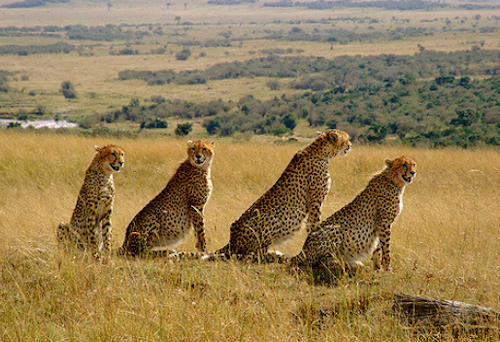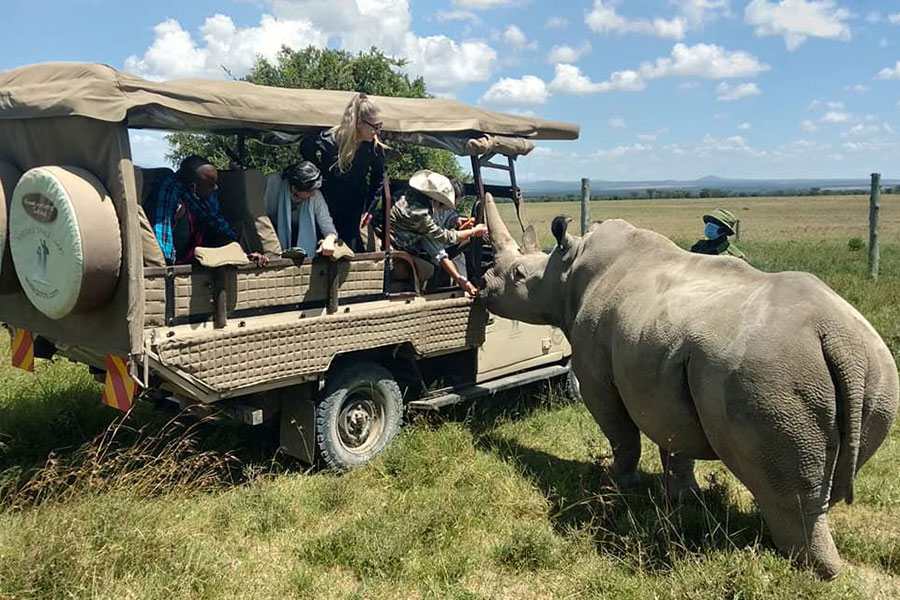For a hassle-free holiday in Mombasa Kenya It is essential to consider security and safety. Be aware of these important aspects:
1. General Security
Stay Informed. Keep track of local travel advisories as well as news from your country of origin.
Make an appointment at your Embassy.
2. Health Precautions
Immunizations - Make sure you've received all your routine vaccinations. Also, consider taking additional vaccinations for Hepatitis-A, Hepatitis-B, Typhoid Fever, as well as Yellow Fever.
Mombasa has a very high malaria incidence. Use antimalarial medicines as well as insect repellents. Sleep under mosquito nets. Wear long sleeves.
Water and food safety. Drink bottled water and avoid ice. Be aware of street food.
3. Personal Safety
Avoid walking alone at night: stay in well-lit, populated areas. Avoid walking in the dark on the beach or in areas that are quiet.
Hotel safes are a good option for storing important items like currency, passports, or other important items. Do not display expensive items such as jewelry or electronics.
Secure Transport: Only take licensed taxis. You can also select the ride-hailing service or use transportation provided by the hotel. Avoid taxis with no markings.
4. Local Laws and Customs
Respect local culture: Dress modestly when you visit religious sites. Be aware of local cultural norms.
Kenya is a country with strict laws regarding drugs and has harsh penalties. Avoid illegal drugs.
Photography: Get permission to take photos before taking photos of people, especially in rural settings or around military and government facilities.
5. Beach and Water Safety
Swimming safely means being aware of local guidance on conditions and currents. Make sure you are in designated swimming areas.
Marine Life: Be aware of marine wildlife such as jellyfish and Urchins. If you're walking along the beach, be sure you wear footwear that is suitable for your feet.
6. Crime Prevention
Petty Crime: Pickpocketing, as well as bag snatching may occur especially in crowded areas. Keep your belongings in a secure location and remain vigilant.
Scams: Beware of strangers offering assistance that seems generous or that seem too tempting to be real. Use licensed tour agents.
Emergency Contacts - Learn the local emergency number (999), including the Fire Department (999) as well as the Ambulance Service (999). Keep the contact information of your consulate or embassy handy.
7. Natural Hazards
Weather: Mombasa enjoys a tropical climate with the potential for massive rainfall and flooding. This is especially the case in the rainy season, from April to June and from October through November. Keep track of forecasts for weather.
Sun protection Use sunscreen as well as hats, wear sun protection and stay well-hydrated to avoid sunburn and heat exhaustion.
8. Travel Insurance
Comprehensive Coverage: Make sure you are covered by travel insurance that covers medical emergencies, theft, loss or disruption to travel. Make sure your insurance policy covers water sports, for instance.
If you consider these safety and security considerations, then you can have a much more enjoyable time in Mombasa. See the most popular kenya day tours for website advice including trip tour companies, kenya holiday packages, trip tour companies, beach in mombasa, kenya holiday packages, kenya tours and travel, kenya beach mombasa, trips to kenya safari, kenya safaris, mombasa tours and more.

What Do I Need To Know About The Weather In Mombasa During My Vacation?
To maximize the enjoyment of a trip to Mombasa in Kenya it is crucial that you know the weather patterns in Kenya. Here are some key factors to consider when planning your trip.
1. Climate Overview
The climate in Mombasa is tropical and humid all throughout the year. Temperatures typically range from 24degC to 32degC.
2. Seasons
This is a period of high temperatures and high humidity. The peak tourist season is December and January.
Long rains (April through June) The rainy season is characterized by frequent thunderstorms and heavy rain. Roads may become muddy making it difficult to travel. This is a time of low demand for tourism.
Cooler Season (June through October) It is the most pleasant time to travel, due to lower temperatures and humidity levels. The general weather is pleasant, making it ideal for outdoor pursuits.
Short Rains (October through November) Shorter rain showers that are less intense are common during this time. The rains are usually brief, and then they are followed by sun.
3. Tips for packing
Lightweight Clothing - Pack clothes that is breathable and light such as cotton or linen to stay cool in the heat of the day. hot.
Rain gear: If you are traveling during the rainy season, you should have an umbrella as well as a waterproof jacket as well as some shoes that are waterproof.
Sun Protection: Sunscreen with high SPF, a wide-brimmed hat sunglasses, and clothing that covers your skin will aid in protecting your skin from the harsh sun.
Swimwear: Don't forget your swimsuits for the pool and beaches at hotels.
4. Weather-specific activities
Beach Time - The best time to visit the beach during cooler weather (June to Oct) is during a time when the water is calm and the weather is good.
Water Sports: The calm, clear water of November to February is ideal for diving, swimming snorkeling, or any other water sport.
Wildlife viewing. The cooler seasons (June-October) are also ideal for wildlife excursions or safaris as the temperatures are less uncomfortable.
5. Health Concerns
Keep hydrated during the humid, hot climate. Drink a lot of water if you are planning to spend time outdoors.
Heat-Related Infections: Be aware that heat exhaustion and heatstroke can occur. Wear loose clothes, take breaks under the shade, and avoid vigorous exercise during the hottest temperatures.
6. Adjustments to Travel
Be ready for delays if you plan to travel during the rainy season. There could be delays due to roads that are not passable and the limited outdoor activities.
Tropical Rains: Sometimes tropical rains can lead to delays in flights. Keep track of travel plans, and make contingency arrangements.
7. Environmental Considerations
Natural Hazards. Beware of the possibility of flooding in heavy rains. Be aware of the current weather conditions, and follow local recommendations regarding safety.
Be mindful of the tides. They are unpredictable and can have a significant impact on beach activities. Check the tide schedules for your area for beach activities and swimming.
By knowing what to expect from the weather in Mombasa, you can better organize and plan your trip. Make sure you pack carefully, and enjoy a pleasant trip. See the recommended mombasa safari tours for site advice including african safari packages, trips to kenya safari, kenya safari and beach, tours and travel company in kenya, mombasa tour packages, tour and travel company, tours & safaris, tour and travel company, safari excursions, tour mombasa and more.

What Environmental Requirements Do I Must Be Aware Of While I Am In Mombasa, Kenya?
It is essential to take care of the environment when holidaying in Mombasa. This helps preserve the beauty and biodiversity of this region. Here are a few key environmental responsibilities that you must be aware of
1. Sustainable Accommodation
Eco-Friendly Hotels: Choose hotels that encourage sustainability. You can look for eco-friendly certifications from Eco-Tourism Nairobi as well as other eco-labels.
Resource Conservation: Participate in hotel initiatives to conserve water and energy. Reuse towels and linens Turn off lights and air conditioning when they are not being used.
2. Responsible Wildlife Viewing
Respect wildlife. Maintain a distance from wildlife to ensure that you do not disturb them. Please follow the directions provided by your tour guide.
Avoid Feeding Animals. The act of feeding wild animals can alter their diet and behavior.
Leave No Track: Don't litter in wildlife preserves or parks. Bring all of your garbage along with you, and then dispose of it properly.
3. Plastic Reduction
Beware of plastics that are intended for single usage. Bring a water bottle or bag that is reusable, as well as tools.
Encourage Local Initiatives: Participate in or support local beach cleanup efforts and organizations that work to reduce the amount of plastic pollution.
4. Water Conservation
Mombasa has water scarcity issues. Use shorter showers, and turn off taps when not in use.
Eco-friendly Products - Choose environmentally friendly and biodegradable toiletries to reduce pollution of the water.
5. Energy Conservation
Reduce energy consumption: limit the usage of air conditioners and disconnect electronic devices when they are not in use.
Encourage Renewable Energy Select accommodations and tour operators who use renewable sources of energy.
6. Sustainable Transportation
Cut down on your carbon footprint by taking public transport, such as buses or matatus, whenever possible.
Consider walking or renting bicycles for short distances. There are some areas that offer eco-friendly tuk tuks.
7. Aiding Local Economic Development
Buy Local: Purchase souvenirs, crafts and even food items locally to help local businesses.
Fair Trade: Select products that are certified fair trade to ensure that local producers are fairly compensated.
8. Environmental Education
Learn and share. Learn more about local environmental issues and conservation efforts. Learn from your experience and share it with others to raise awareness.
Respect local cultures: Know and accept local customs and traditions relating to environmental conservation.
9. Marine Conservation
To ensure that you are conducting your snorkeling and diving safely, avoid touching coral reefs or stepping onto the reefs. Be sure to safeguard marine life using reef-safe sunscreen.
Do not dump waste into the ocean. Join or assist in marine conservation programs.
10. Ethical Souvenirs
Beware of Wildlife Products Avoid purchasing items made of endangered animals, such as ivory and tortoiseshell.
Sustainable Materials: Select souvenirs made from sustainable or recycled materials.
11. Participate in conservation Activities
Volunteer: Consider taking part in local conservation projects or tourism-related initiatives for the community.
Support local non-governmental organizations. Donate to local NGOs, and organizations dedicated to protecting the environmental.
12. Responsible Travel Policies
Small groups of travelers can lessen the environmental impact.
Eco-Tours. Select tour operators who are committed to sustainable practices and adhere to eco-friendly methods.
Make sure these environmental obligations are at the forefront of your thoughts to help protect Mombasa's resources. View the best kenya tours and safaris Wasini Watamu for site examples including trips to kenya safari, safari a nairobi, holiday packages mombasa, tours and safaris in kenya, cheap kenya safari packages, safari trips in kenya, safari company kenya, luxurious african safari, kenya travel, kenya mombasa holiday packages and more.
